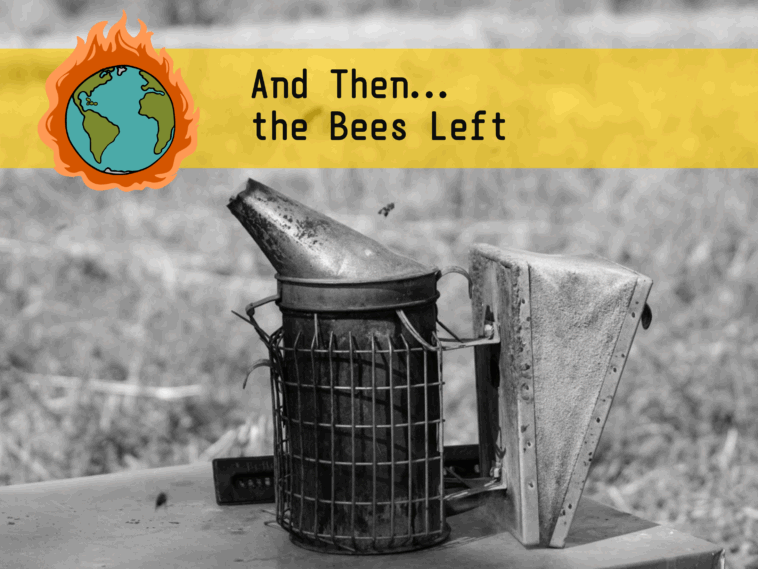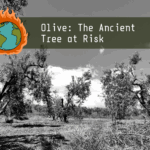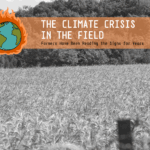“Regions nationwide with zero or extremely reduced production, regions where beekeepers are struggling to keep their colonies alive so they are not lost, regions where bee swarms were lost due to the absence of flowering caused by drought, honey flows (e.g., thyme or spring nectar sources) that offered nothing or yielded very little. A lack of pollen everywhere, which is essential for the development and creation of productive colonies starting in spring, and unsustainable costs for transporting beehives to nectar rich areas from spring through autumn, which in many cases do not even cover basic expenses, make up the current picture of Greek beekeeping, in what is the worst beekeeping year in many decades.”
This is noted by the Federation of Beekeeping Associations of Greece in the July-August 2024 issue of the magazine Beekeeping Forum, declaring that the bees are starving.
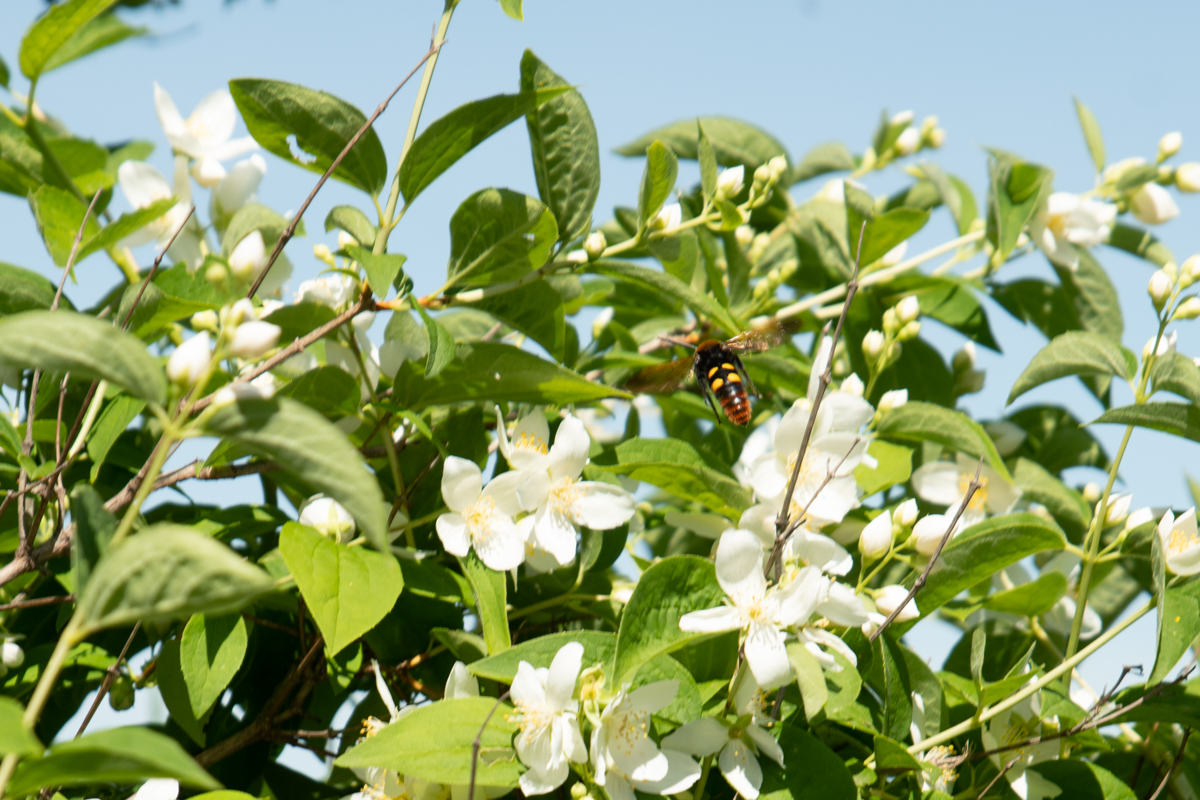
What this means for the colonies and for the food chain in general becomes clear when one considers that bees make up over 80% of the world’s pollinating insects.
We visited the Laboratory of Apiculture-Sericulture at Aristotle University of Thessaloniki (AUTh), one of the few university laboratories that is accredited and which, in addition to field research and teaching, provides hive analyses to beekeepers, among other services.
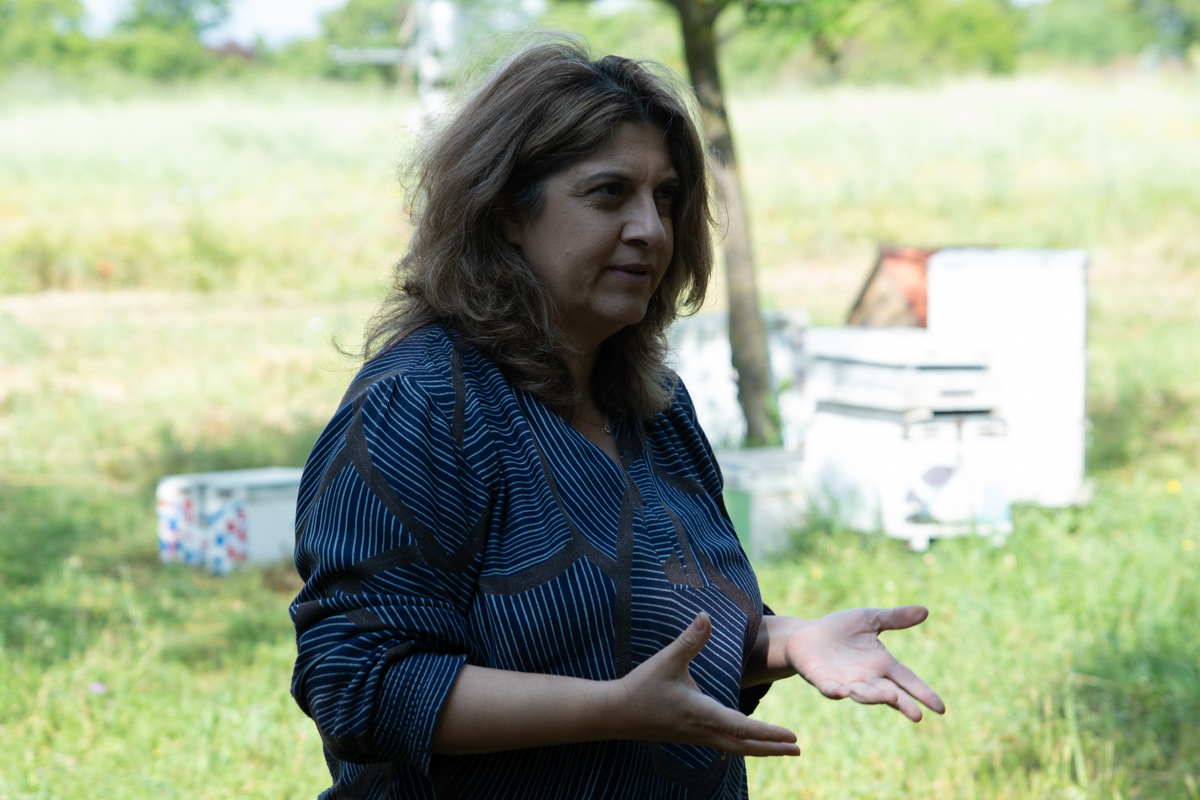
As stated by Chrysa Tananaki, Associate Professor in the Department of Agriculture at AUTh and Director of the Apiculture Laboratory, “Unfortunately, when we come to evaluate the bee, we only focus on honey, and few people appreciate its work as a pollinator. There are many pollinators, not only the bee, of course, but consider that in beekeeping, Greece is the third country in Europe in terms of the number of colonies. It has around 2.5 million hives. Beyond the large population, these colonies contribute to wild vegetation as well as to agricultural crops through targeted hive relocations. For biodiversity and for our diet, the bee is essential, we cannot live without it.”
When asked what would happen if the species of bees were to disappear, she responds: “I believe that many of the things we have to eat would no longer exist, and many of the things our eyes see today, we would no longer see.”
Watch the video: The Climate Crisis threatens the bees
The Bee is Dependent on the Climate-Effects on Honey Production
“The bee, and especially the domesticated bee that lives in hives, has never been truly domesticated in the way we think of other animals. Humans have simply adapted to the way bees live and have made appropriate interventions to be able to produce more honey. The bee is directly dependent on the climate, whether it concerns temperature or, more importantly, its food,” explains Tananaki, stressing that “there is nothing that can replace natural food, which is the pollen and nectar collected from plants.” This alone, she says, shows the bee’s dependence on climatic conditions.
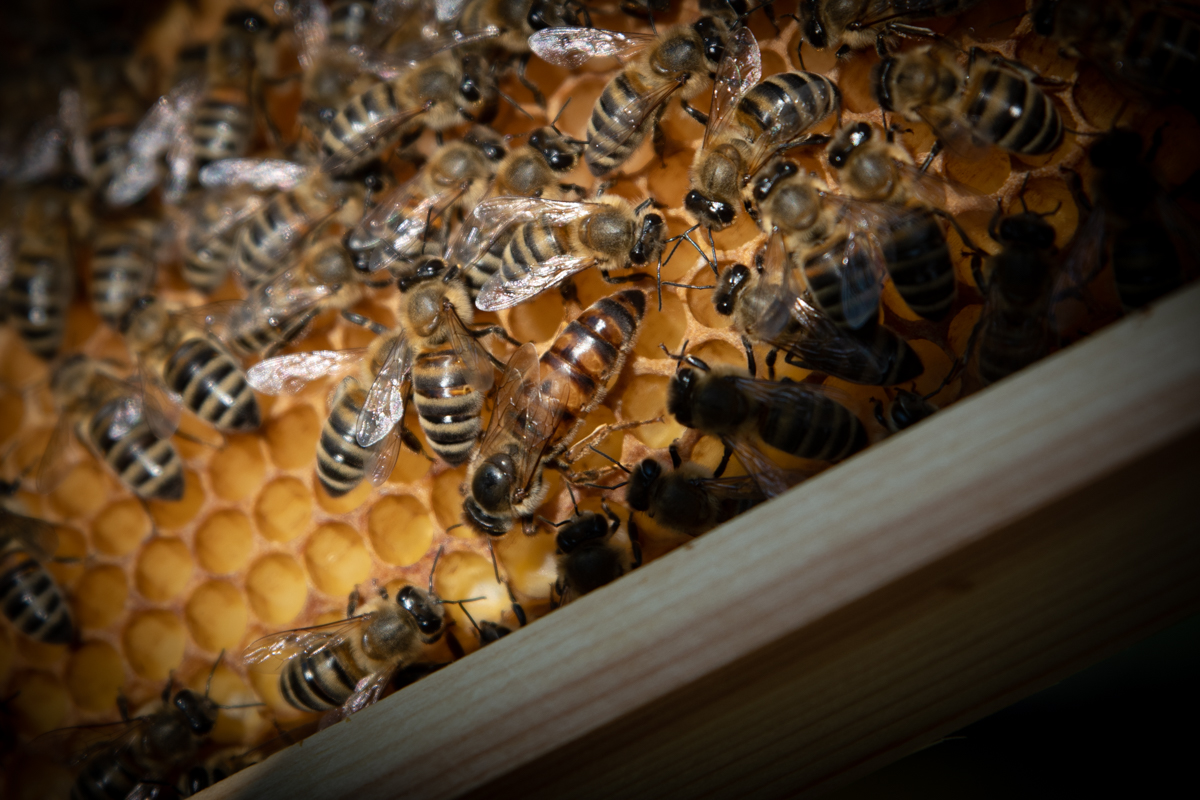
The climate crisis affects bees and colonies, given that in recent years we have experienced much higher temperatures and for much longer periods. Flowering has been limited to spring, which means there are no plants, especially in lowland areas, for bees to collect what they need during the summer. This results both in reduced honey production and in bee deaths. The latter is also due to the fact that the effects of the climate crisis on crops lead farmers to apply more pesticides, which in turn causes further bee losses. At the same time, according to Tananaki and other experienced beekeepers, the climate crisis has led to outbreaks of many diseases in hives. An example of this is Varroa destructor, which is not so much due to prolonged summers but rather to mild winters. This is a mite that parasitizes bees, and its population decreases when the brood in the hive decreases. High winter temperatures keep the brood active, and thus the Varroa population remains at high levels, circulating throughout the year.
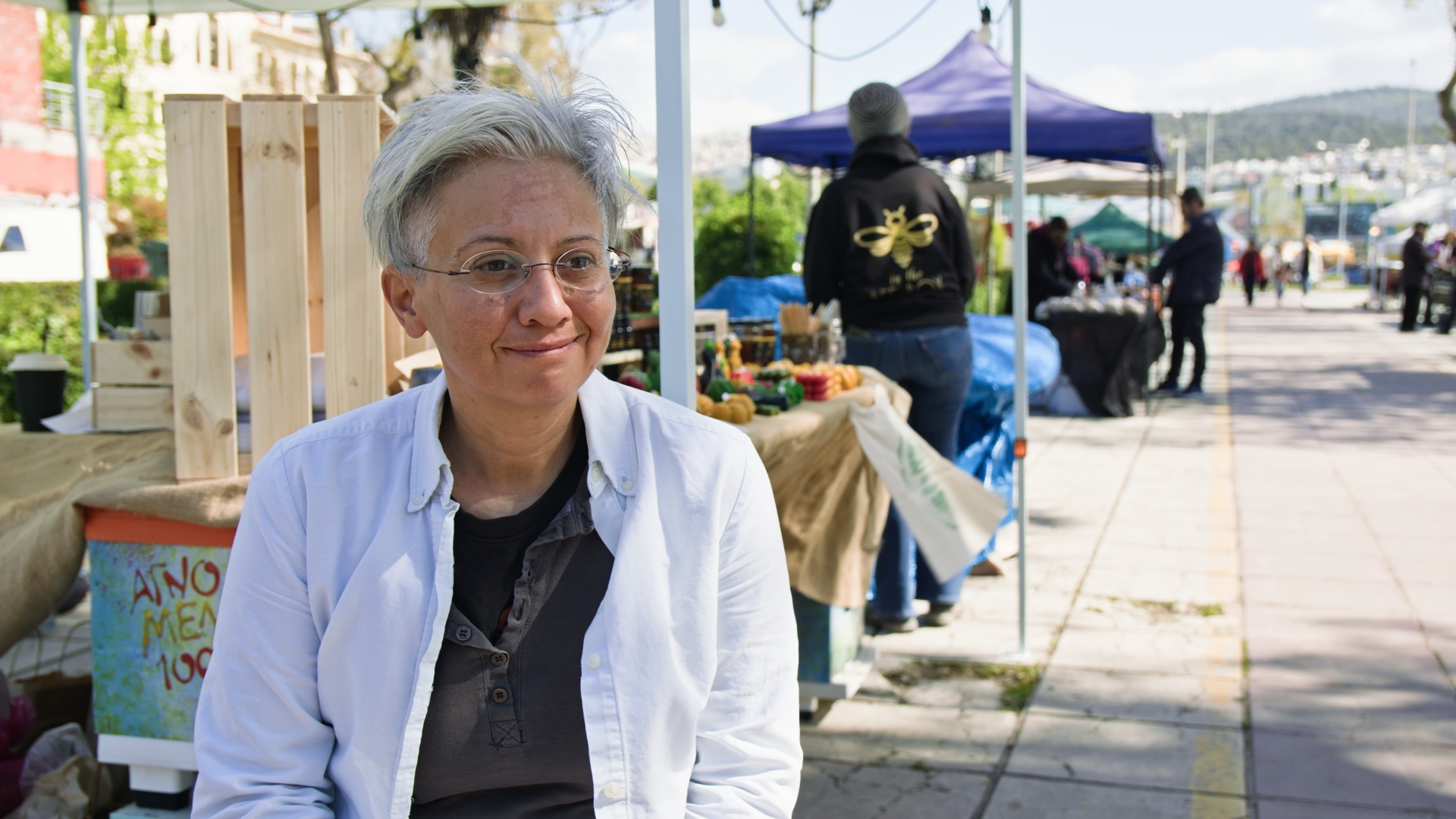
“Survival is difficult when practicing professional beekeeping because every year is challenging in terms of weather conditions and colony production. Colonies can no longer find pollen like they used to, and I believe this is due to climate change,” says Alexandra Sotiraki, former president of the Thessaloniki Beekeeping Association, who spoke to Alterthess during the Ecological Agriculture and Handicraft Festival held in Thessaloniki in May. According tο Sotiraki, the effects have become visible over the past five years as colonies fail to develop. “This has brought us to our knees. It is difficult to grow and multiply our colonies, and it is difficult to collect honey and other products bees produce.” Drought seems to be the biggest problem, as Sotiraki reminds us: “You can’t water the forests around which the colonies are located. If it doesn’t rain, like last year when there were two months of continuous drought, honey production will be very difficult. The only honey we managed to get last year was pine and oak honeydew.” The poor state of beekeeping was reflected in 2024 production, which, according to her, was reduced by 70%-80%.
In addition to drought, recent years have also seen sudden muddy rains in spring and summer, with mud coating plant buds and leaves that would otherwise produce nectar.
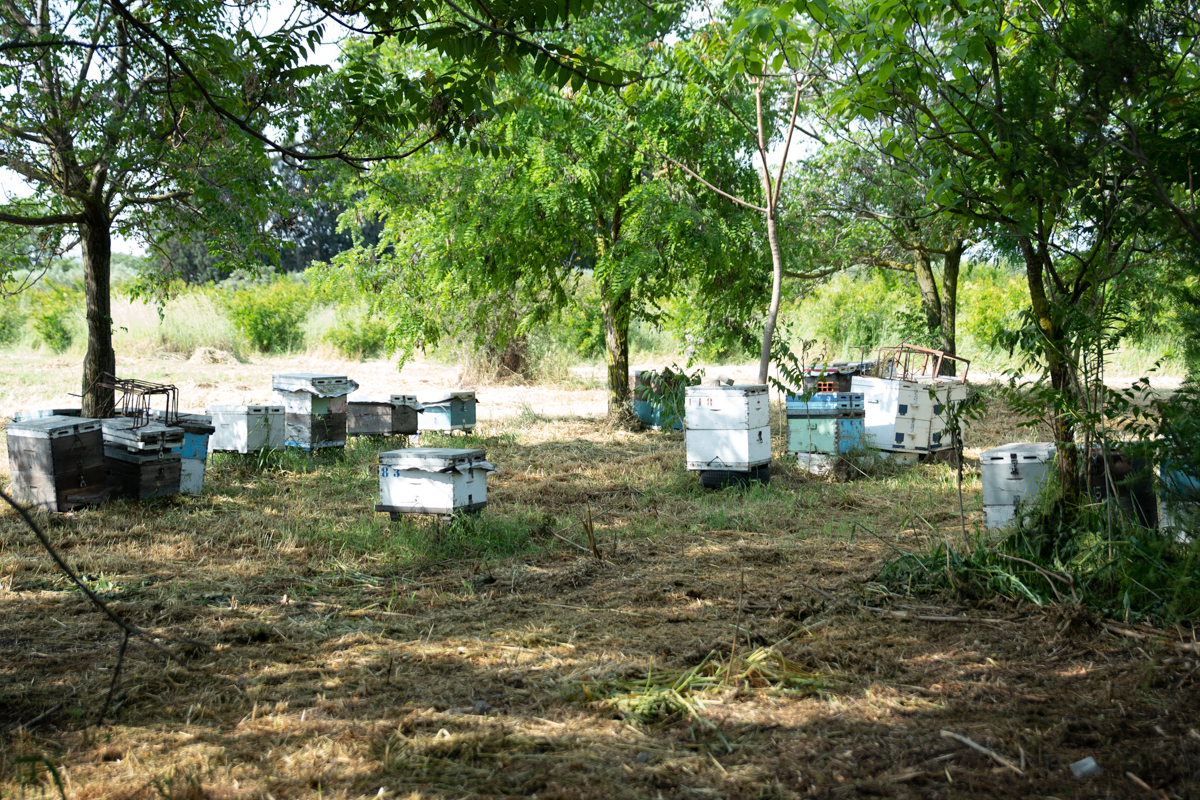
“The bee is unable to find pollen. As a result, the plant is also affected. On the other hand, drought burns the flowers. It’s a double-edged sword, we don’t want too much rain, nor too much heat, and now the combination of rain and mud is the worst thing in recent years. Among other effects, it disorients communication between bees,” notes Yiannis Papatheologis, a beekeeper in Ierissos.
Flood events, like Storm Daniel in Larissa, or fires in Evros and Evia, signal total destruction. “A flood is, in some cases, even worse,” says Sotiraki. “What happened in the plain of Larissa is that natural pollinators, beyond bees, which tend to make their nests in the soil, drowned. The problem is not only that crops will be destroyed but also that the next crops planted in their place will not have pollinators unless we move our hives there.”
“Yes, a large bee population was lost,” says Papatheologis. “We have losses in the Peloponnese and in Evia as well. We are a country with a very strong brand name for our honey, and suddenly honey quantities have dropped sharply. So, the entire climate change phenomenon causes massive damage and rapidly decreases bee populations. If 5,000 bee colonies are lost, it takes a very long time to rebuild them. It takes at least three years of hard work to bring them back to life and make them productive again, to reach the honey quantities we once had as a country.”
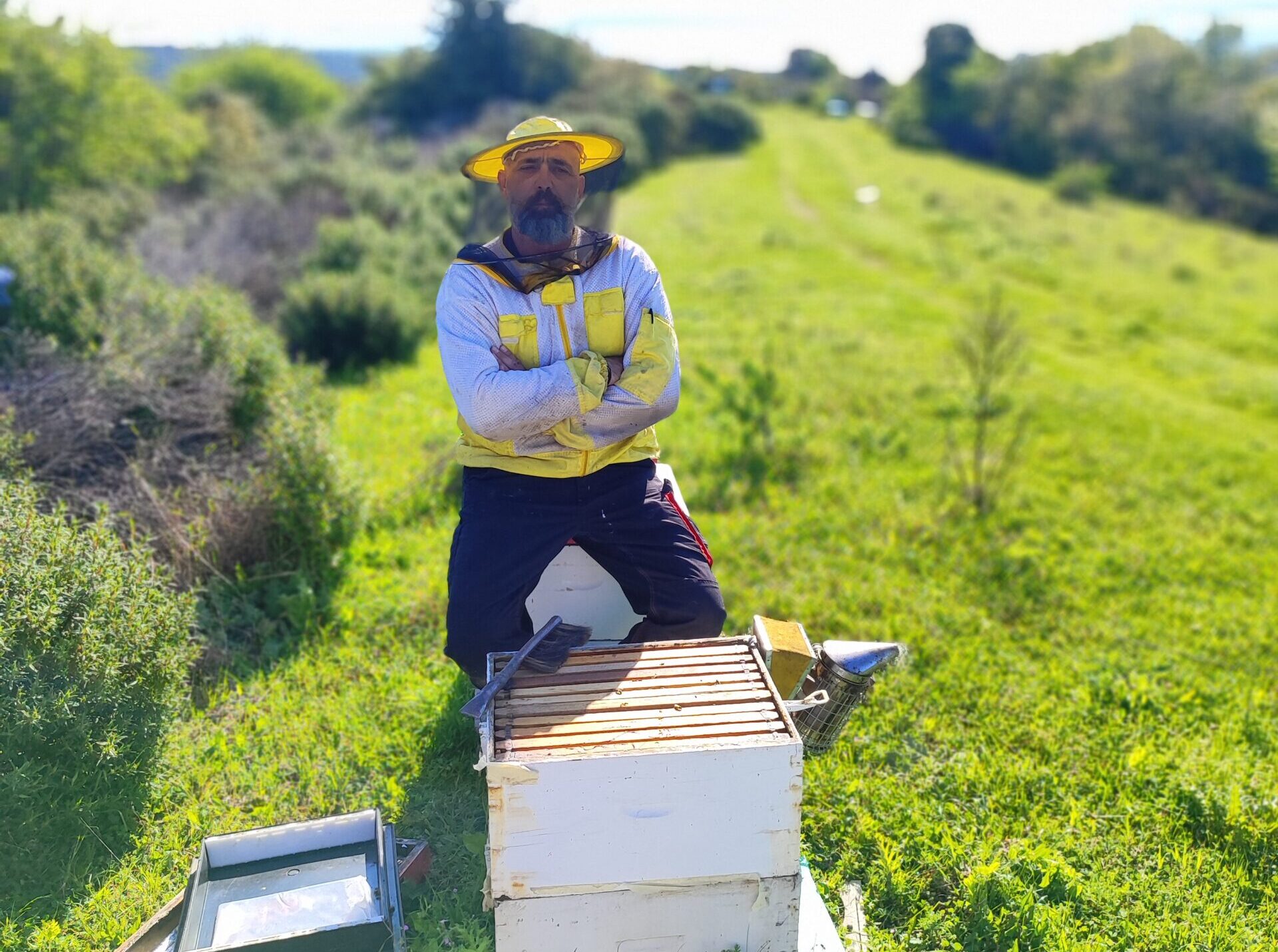
Chrysa Tananaki returns to the issue of natural disasters. Large fires in Evros and Evia not only lead to the loss of thousands of hives but essentially to the loss of areas where beekeeping can be established. “If there is no vegetation, there is no beekeeping interest,” she says characteristically. In addition to floods, sudden rains also pose problems. Beekeepers often place their hives near stream banks because, due to drought, there is more moisture and vegetation there. “If a torrential rain begins in July and the stream overflows, the hives placed along its banks are swept away and lost to the sea,” she adds.
Bee starvation is directly connected to the climate crisis and leads primarily to a lack of food, but also to problems involving the biological cycle of the bee and the colony, pathology issues (diseases or even new predators that did not previously exist, such as the Asian hornet), as well as challenges related to hive placement.
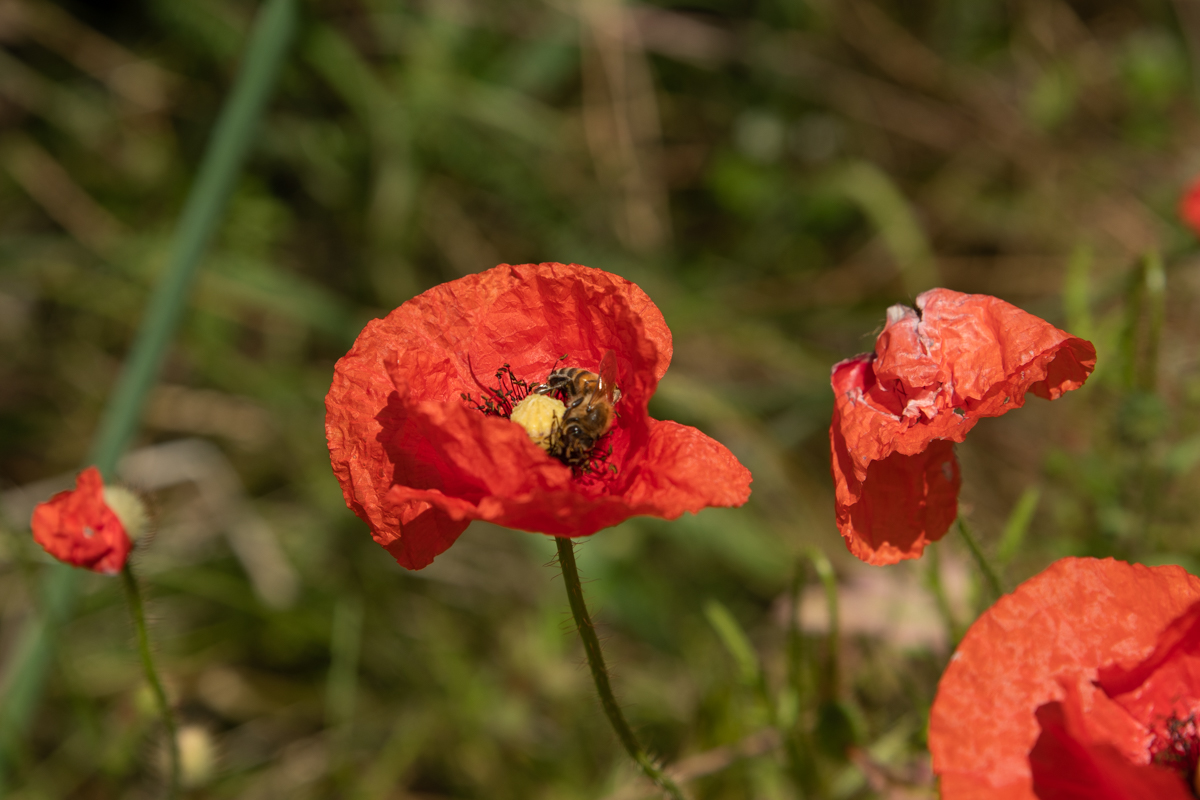
Seeking Solutions through Hive Relocation
Beekeepers, without substantial help from the government or state authorities, are trying to deal with this situation using empirical methods, such as moving their hives to mountainous areas during summer. However, even in these areas, conflicts often arise, for example, in Chalkidiki, due either to over-tourism or to other environmentally destructive and bee-harmful activities such as mining or the use of agricultural land for renewable energy projects. Nevertheless, hive relocation can help regenerate areas that have suffered destruction from floods or fires, a practice that beekeeping associations are calling on the state to support.
“We can move our hives to any area that has suffered a natural disaster where other pollinators have been buried. The bee can pollinate in these areas. This is another reason why beekeepers must be subsidized. If we had not made these hive relocations, bees would have disappeared years ago due to the pesticides used on crops. It is through our interventions that we multiply the bee population and restore balance,” says Sotiraki.
The way colonies multiply is well known. “Every spring, the natural tendency of the colony is to grow. The queen lays eggs intensively, and the colony expands, having a larger ‘army.’ We take part of this ‘army’ and some honey to create a nucleus colony, a small hive that will develop a new queen and a new bee society, which will become productive the following year,” explains Sotiraki.
The main demand of beekeeping associations is a combination of support from both the government and the European Union. “When I talk about support, I don’t mean only financial support, such as compensation for losses or subsidies. We need more favorable legislation for beekeepers. We need stricter laws for pesticides and resolution of disputes with forestry services regarding hive placement in forests,” argues the former president of the Thessaloniki Beekeeping Association.
For Tananaki, it is crucial for people to learn about the importance of bees: “From young children to farmers, everyone should understand that crops can coexist with bee colonies. In America, for example, farmers pay beekeepers to bring their hives to almond orchards. This could provide additional income to beekeepers to cover the financial gap caused by low honey production. For the sector to be productive, it must also be sustainable.”
“Another important aspect is the coordinated handling of hive relocations. Until now, relocations have been done informally. A proper system should be found, with designated bee routes, so beekeepers know where and when to move their hives. Also, it is essential to convince people that there are plants that are suitable for bees and can be planted, in cooperation with forestry services and municipalities, who can also contribute. After all, there are drought-resistant plants that can survive under these conditions. I believe there are certain practices that can help beekeepers change things for the better,” she concludes.
Up next: Olive, the ancient tree at risk
The Research “The Climate was already bad” was realised with the support of Rosa Luxemburg Stiftung-Office in Greece. Read the complete Research here.
